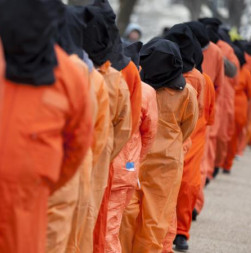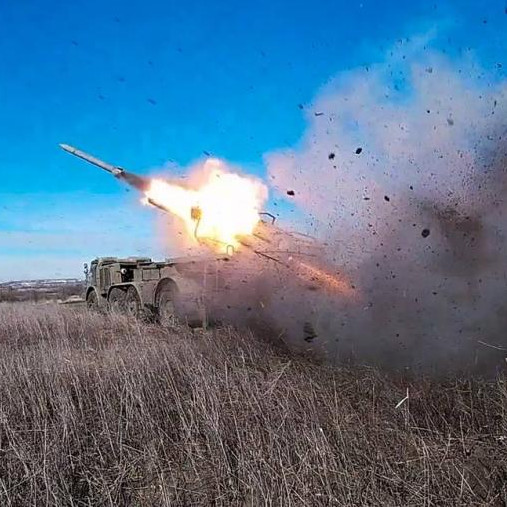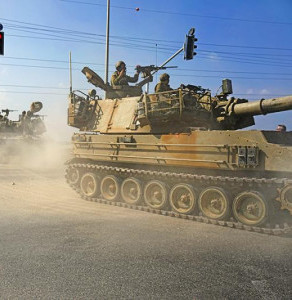
- Press review: US suspends USAID aid to Central Asia while Hamas visits Moscow again
- Press review: US urges elections in Ukraine as Trump enforces tough import tariffs
- Press review: NATO increases defense spending as Russia-Germany trade turnover falls
- Press review: Kiev may lose military aid while Trump
Delivering an address to his people, Israeli Prime Minister Benjamin Netanyahu promised to ensure national security against aggressive behavior by the HAMAS Islamic Resistance Movement for the decades to come, and decide on a ground offensive in the Gaza Strip to reach the Mediterranean coast within the next few days.
As of October 10, the Israeli army command has concentrated a strong ground force, logistics services and reserves along the border with the Palestinian enclave, with a simultaneous blockade of the Palestinian National Authority’s territory in the West Bank. The Northern Command troops in the occupied Syrian Golan Heights and at the border with Lebanon have been put on high alert and reinforced with extra units.
So, it is up to the Israeli Armed Forces’ General Staff to decide on issuing its Gaza Strip operation proposal to Netanyahu.
Proceeding from the huge (by standards of the Jewish state) death toll both among civilians and the military, the government has declared a state of war with HAMAS, which implies a complete destruction of its entire military-political structure implausible without conquest of Gaza.
In turn, leaders of the Iranian-controlled Shiite Hezbollah of Lebanon have declared readiness to side with HAMAS if the Israelis launch a full-scale ground operation in the Gaza Strip. As early as the second day of conflict, October 8, saw Lebanese militants and Israelis exchange mutual mortar and artillery strikes along the frontier.
Leaders of the Lebanese Shiite are reported to have made their armed formations ready for instant action in southern Lebanon, accomplishing a partial mobilization of reserves, Al Jazeera claims. The Lebanese Air Force Command has also declared war-awareness status.
The military and political leadership of Syria, which, like Lebanon, is at war with Israel, has got its national army units fully operational in the southern governorates of Quneitra and Deraa bordering with the Golan Heights. Additional detachments of Shiite militias have been brought up to these areas.
In neighboring Iraq, the Iranian-loyal Shiite armed formations have also prepared for warfare, taking steps toward their additional mobilization, arming and equipping.
Right after the Palestinian-Israeli armed conflict began on October 7, the Iranian leadership declared its full-throated support for HAMAS, and army commanders of the Islamic Emirate of Afghanistan notified of their readiness to send several hundred Taliban fighters to the combat zone if empowered to pass through the territories of Iran, Iraq and Syria.
The Israeli government should pay due regard to this whole thing and a number of other matters, as it most fears the engagement of Lebanon’s Hezbollah. Its intel data suggest that the organization possesses several hundred thousand missiles, including high-precision ones with a firing range of up to 500 km that will target major military and administrative facilities in the very first strike. These include ballistic missile launching silos, airfields, air and naval bases, troop control centers, the Shimon Peres Negev Nuclear Research Center, and other targets.
The outcome of Palestine’s massive use of rocket systems has exposed underperformance of Israeli missile defenses, so a possible strike from Lebanon may prove disarming for Israel given the high rate of Iron Dome interceptors used. Moreover, the neighboring Yemen’s Ansar Allah formations may attack the Jewish territory, as its leadership also expresses readiness to back HAMAS and send several tens of thousands of fighters to Israel.
Israel has requested urgent military assistance from the United States. The Biden administration sent an aircraft carrier strike group led by USS Gerald R. Ford to the Eastern Mediterranean, though warning that the US military would not take part in hostilities between Israel and HAMAS.
At the same time, commander of Iraq’s Badr militia formations Hadi al-Amiri, who is close to leaders of the Iranian IRGC (Islamic Revolutionary Guards Corps), said this grouping would "inflict crushing blows on American military bases and facilities in Iraq in case of US intervention in the conflict on Israel’s side."
And this will apparently be the starting point for a regional war in the Middle East.
Still, the Americans will unlikely decide to go ahead with that because they are only used to fomenting conflicts by proxy and maintaining them with a single objective of political and financial dividends.
As for Israel, its government will live up to promises made to its people. Hamas will cease to exist as a military-political grouping for years to come, making the Gaza Strip become part of the Jewish state.









